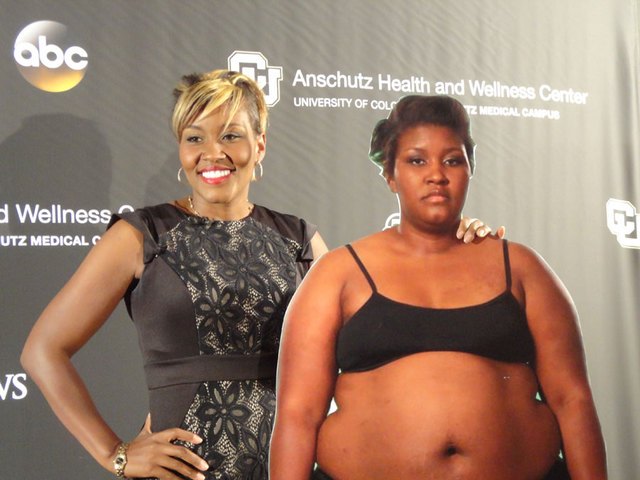Mindful Breakfast To Lose Weight
Breakfast is the most important meal of the day. Very important, indeed.
Breakfast helps us to kick off our day the right way as the start of the day is the only time that eight, and perhaps ten or more, hours have gone by between meals. One reason why some of us mindlessly nibble, munch and eat all day could be that they don't start the day off right by eating a nutritious breakfast.
Even if you don't eat more after skipping breakfast, the calories you eat later in a day are more likely to be stockpiled as body fat. A study from Vanderbilt University found that women who ate breakfast lost more weight than did breakfast skippers, even though both groups consumed the same amount of calories.
During the hours since dinner, and even while sleeping, the body still needs fuel to keep the normal processes functioning. Much of that fuel comes from readily available stores of glucose. However, more than half of your glucose reserves would be drained out by the time morning rolls around, and your body needs a kick start that comes only from a carbohydrate-rich meal.
If you skip breakfast, you still might feel fine, full of energy, and raring to go, for the first few hours after you wake up. That counterfeit burst of energy comes from a mind and body revved from a good night's sleep. However this initial energy glow wears off for the breakfast skipper as the morning's demands stress a body already running on fumes. By afternoon, even if you eat a relatively good lunch in an effort to boost lagging energy levels, it's too late to acquire the daylong energy you would have had if you'd taken five minutes to eat breakfast.
Why is breakfast so important to long-term health? One reason is that it may be the most nutritious meal you eat. Today's typical breakfast is high in grains, fruit, and milk, making it a major contributor of vitamins, minerals, and fiber. The long-term consequences of these marginal nutrients include chronic fatigue, poor concentration, memory loss, depression, and other physical and mental problems.
Breakfast also helps us stay trim, which reduces the risk for numerous diseases associate with poor health and fatigue, including heart disease, cancer, diabetes, and hypertension. The link between breakfast and a trim figure is threefold:
o Skipping meals slows metabolism, so woman who skip breakfast gain weight more readily on fewer calories than do women who eat frequently throughout the day, starting with breakfast.
o Ironically, women actually eat more, not less, when they skip breakfast.
o The brain releases greater amounts of a nerve chemical called neuropeptide when you skip breakfast, which unconsciously signals you to keep eating. The condition is called "night-eating syndrome": once you start to eat at midday, you don't stop, and you end up consuming more food and calories between noon and bedtime than do people who ate breakfast.
o Breakfast skippers are more prone to mindless eating; they snack throughout the day on less nutritious, high-fat or high-sugar, quick-fix snacks, like chips, candy, and other crispy or sweet snack foods. The overwhelming hunger that comes from the extended fast crushes willpower and leaves a woman so raveneous, which can be the leftover waffles on her kid's plate, the fried dumplings ordered at the Chinese restaurant, or the chocolate chips right out of the bag. These choices might satisfy immediate hunger, but they fuel fatigue in the long run.
-
10 Tips To Maximize Your Metabolism
Metabolism basically means the count of calories you burn daily. Repea
-
Getting Enough Fiber Is Important For Weight Loss
Fiber is an important part of a healthy diet, but did you know it can
-
Get To Know About Free Weight Loss Plans
Being overweight and obese is one of the main health concerns today an
-
Lose Stomach Fat In Your 50s: Can You Drink Alcohol And Still Control Weight?
Many of us like to have a social drink -
-
6 Easy Ways To Lose Belly Fat
In todays world, where everybody is getting conscious about looking go
-
Is you who suffer from fat?
In contrast to guys, ladies will probably are afflicted by fat. There
- DON'T MISS
- Hoodia And Phentermine-Don't Play Russian Roulette
- 7 Things About Food You Should Stop Believing
- A World Of Permanent Weight Loss
- Don't Take Slimming Products With Undeclared Drug Ingredient
- Affects Of Night Eating Syndrome On Weight Loss
- Top Secret Fat Loss Secret Review – The Pros And Cons Of Dieting And Weight Lose Reviews
- How To Burn Fat Fast And Stay Fit
- Eating Healthy While Traveling Is A Challenge
- Devious, Ingenious, Desperate Strategies for Weight Loss
- Strategies To Support A Child Suffering From Anorexia




